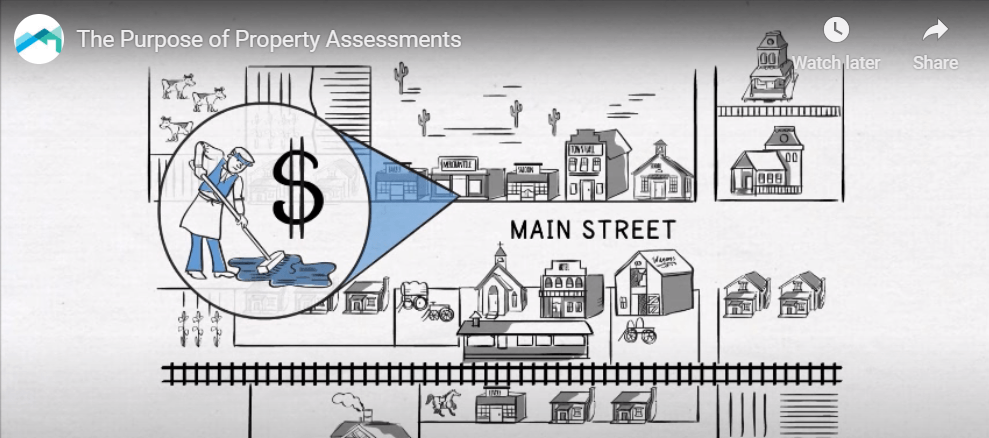The Purpose of Property Assessments [Video]
Have you ever wondered why we pay property taxes or how “they” decide who pays what? This video by BC Assessment explains the purpose of property taxes, and how they benefit everyone! Enjoy!
Transcript:
This is Milltown a typical town with typical townsfolk. But when it rains the whole town from the mayor do with mouse have the same messy problem, mud. Mill towns mud is affecting everyone. the shopkeeper can’t keep his shot clean, the widow Swenson can’t safely walk down the street. The only way to get to your wagon is to trudge through the mud and a mayor with muddy shoes,well, that just isn’t mayorly. What Milltown needs, is a brand new boardwalk along Main Street, but who will pay for the new boardwalk?
Everyone gathered at a town meeting to figure out what to do. Some folks said the shops along Main Street should pay for the boardwalk, because they would benefit the most. Others thought that because the rich folks had more money they could afford to pay more. The farmers felt that they would have to raise their prices if they had to pay for the boardwalk, and the business owners at the wagon shop and the sawmill thought that they would have to raise prices too.The widow Swenson said she was on a fixed income and wondered if she had to pay the same as everyone else. The railway owner, didn’t show up at all, so some folks thought he should pay for everything.
What they did agree on, was that as a community everyone had a collective interest in the good of the town and the one thing they had in common was that they all owned property in Milltown. So it was decided that each property would be taxed and a portion of the money collected would be used to pay for the new boardwalk. What seems fair to everyone was to tax each property based on its value and how it was being used.
So the owners of the wagon shop, the sawmill, and the shops along Main Street would have to pay more taxes because of how their properties were being used. And based on the value of their property the folks who lived in bigger houses and in better neighbourhoods would end up paying more tax than the average homeowner. It was decided that farmers would get a break because higher taxes would mean the price of food would increase, and this would affect everyone in Milltown. Everyone agreed it didn’t make sense to tax properties like schools and churches because they were already publicly funded and provided services available to everyone. And even though the widow Swenson lived on Main Street and her property could be developed in the future, it was agreed that she would pay less tax because she had lived on the property for many years.
In 1974 the Assessment Act and BC assessment performed from principles just like these. BC Assessment was created to provide assessment which are relied upon to build sustainable communities throughout BC. The good people at BC Assessment determine the value of your property, send out a notice once a year, and then ask you to decide if the value is accurate. To keep things fair you have the option to check and compare the values of other property assessments online.
Thanks to the funding generated from your property taxes improvements like a new boardwalk and services like police, fire, schools and hospitals are made possible in your community from Milltown to your town.
Katherine Martin
Origin Mortgages
Phone: 1-604-454-0843
Email: kmartin@planmymortgage.ca
Fax: 1-604-454-0842
RECENT POSTS






